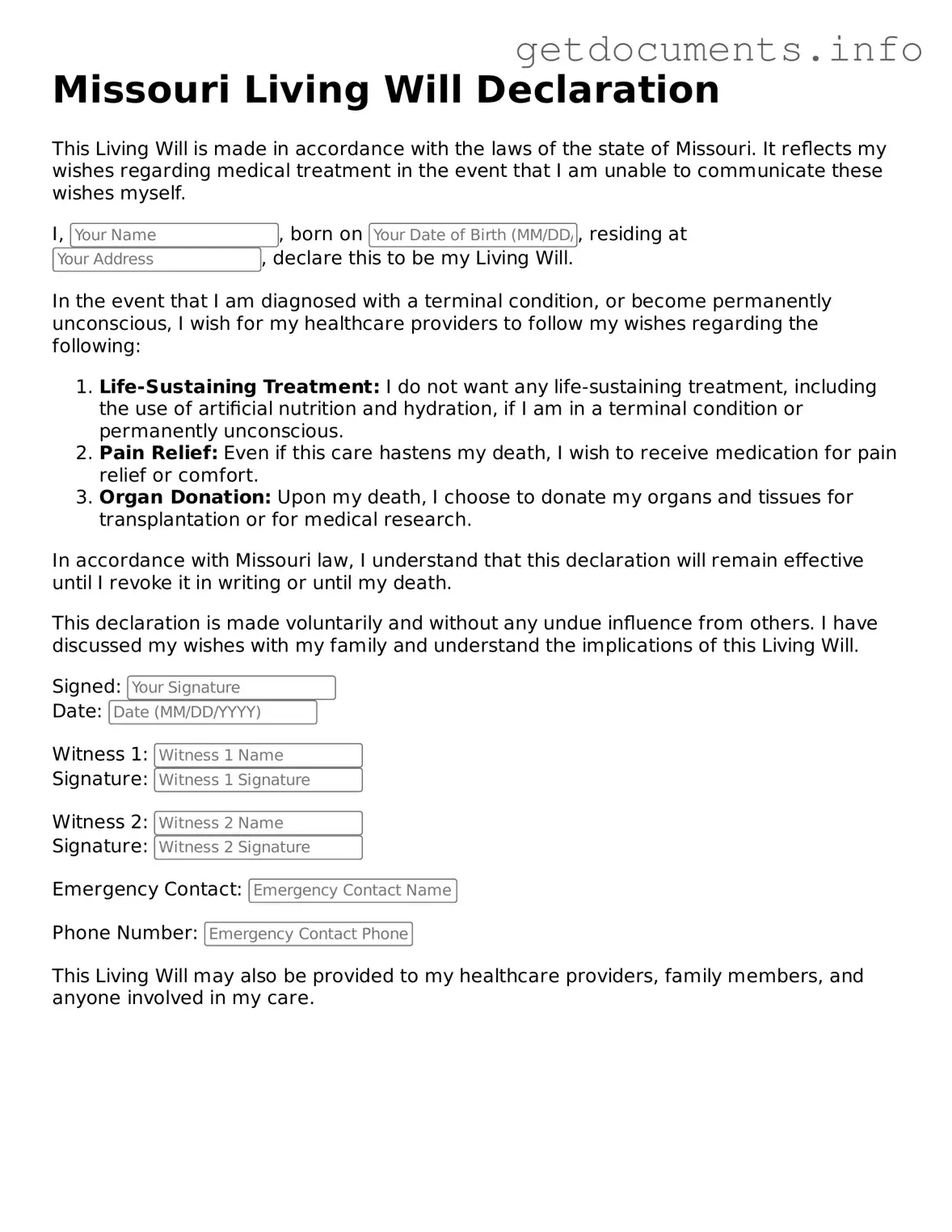Free Living Will Template for Missouri
A Missouri Living Will form is a legal document that allows individuals to express their wishes regarding medical treatment in the event they become unable to communicate their preferences. This form ensures that your healthcare decisions are respected and followed by medical professionals and loved ones. To take control of your medical future, consider filling out the form by clicking the button below.
Access Living Will Editor

Free Living Will Template for Missouri
Access Living Will Editor
Got places to be? Complete the form fast
Fill out Living Will online and avoid printing or scanning.
Access Living Will Editor
or
⇩ PDF File
